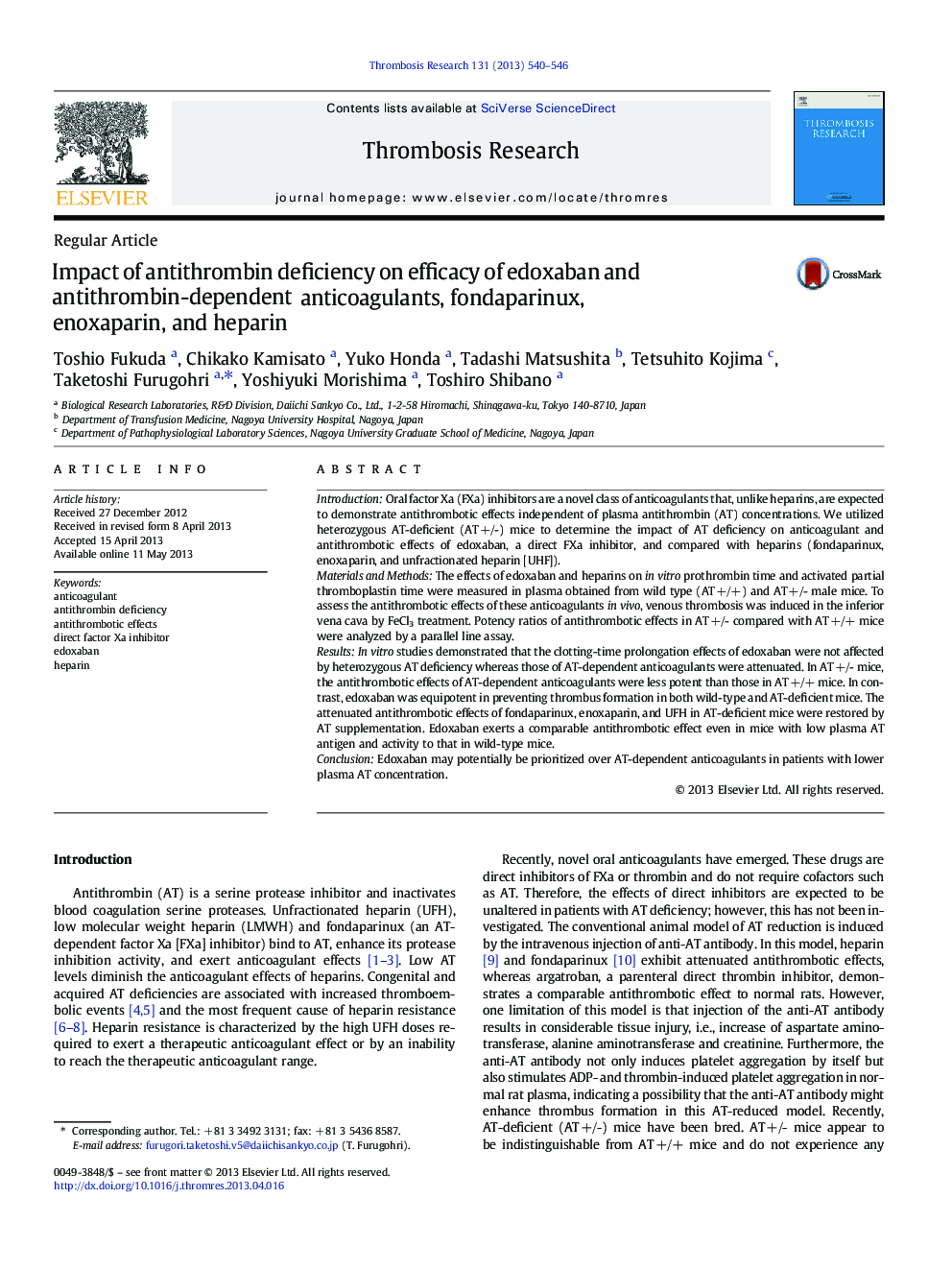| Article ID | Journal | Published Year | Pages | File Type |
|---|---|---|---|---|
| 3027188 | Thrombosis Research | 2013 | 7 Pages |
IntroductionOral factor Xa (FXa) inhibitors are a novel class of anticoagulants that, unlike heparins, are expected to demonstrate antithrombotic effects independent of plasma antithrombin (AT) concentrations. We utilized heterozygous AT-deficient (AT +/-) mice to determine the impact of AT deficiency on anticoagulant and antithrombotic effects of edoxaban, a direct FXa inhibitor, and compared with heparins (fondaparinux, enoxaparin, and unfractionated heparin [UHF]).Materials and MethodsThe effects of edoxaban and heparins on in vitro prothrombin time and activated partial thromboplastin time were measured in plasma obtained from wild type (AT +/+) and AT +/- male mice. To assess the antithrombotic effects of these anticoagulants in vivo, venous thrombosis was induced in the inferior vena cava by FeCl3 treatment. Potency ratios of antithrombotic effects in AT +/- compared with AT +/+ mice were analyzed by a parallel line assay.ResultsIn vitro studies demonstrated that the clotting-time prolongation effects of edoxaban were not affected by heterozygous AT deficiency whereas those of AT-dependent anticoagulants were attenuated. In AT +/- mice, the antithrombotic effects of AT-dependent anticoagulants were less potent than those in AT +/+ mice. In contrast, edoxaban was equipotent in preventing thrombus formation in both wild-type and AT-deficient mice. The attenuated antithrombotic effects of fondaparinux, enoxaparin, and UFH in AT-deficient mice were restored by AT supplementation. Edoxaban exerts a comparable antithrombotic effect even in mice with low plasma AT antigen and activity to that in wild-type mice.ConclusionEdoxaban may potentially be prioritized over AT-dependent anticoagulants in patients with lower plasma AT concentration.
